Faculty Training
Mentoring students is the primary responsibility of faculty preceptors. There are many resources available to help faculty learn and incorporate effective practices in their mentoring, and we encourage our faculty to participate in the many faculty training opportunities. Some of these are described below.
OGE Faculty Mentoring
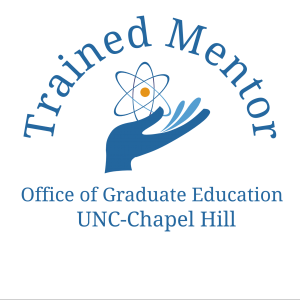 The Office of Graduate Education in the School of Medicine holds a Mentoring Workshop each semester, modeled on the Entering Mentoring program developed at the University of Wisconsin. Topics include: Effective Communication; Aligning Expectations; Assessing Understanding; Fostering Independence; Self-Efficacy; Professional Development; Addressing Equity and Inclusion; Articulating Your Mentoring Philosophy. New GMB faculty are required to participate in this workshop within their first three years of appointment, and experienced faculty are strongly encouraged to participate.
The Office of Graduate Education in the School of Medicine holds a Mentoring Workshop each semester, modeled on the Entering Mentoring program developed at the University of Wisconsin. Topics include: Effective Communication; Aligning Expectations; Assessing Understanding; Fostering Independence; Self-Efficacy; Professional Development; Addressing Equity and Inclusion; Articulating Your Mentoring Philosophy. New GMB faculty are required to participate in this workshop within their first three years of appointment, and experienced faculty are strongly encouraged to participate.
Culturally Aware Mentoring
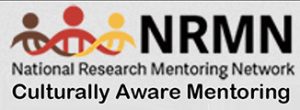 The National Resource Mentoring Network has developed the Culturally Aware Mentor Training program. UNC hosted two Master Facilitators for a group of 16 faculty in fall 2017. We hope to bring them back regularly. In the meantime, please see these mentor resources.
The National Resource Mentoring Network has developed the Culturally Aware Mentor Training program. UNC hosted two Master Facilitators for a group of 16 faculty in fall 2017. We hope to bring them back regularly. In the meantime, please see these mentor resources.
Faculty that have mentored a Gilliam Fellow have taken similar training (though they are marked with the same badge derived from the NRMN logo shown here).
Diversity, Equity, and Inclusion certificate
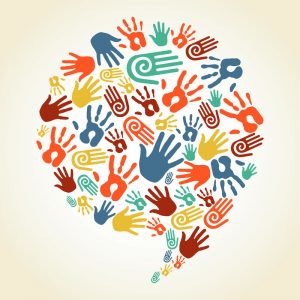 The UNC Office of Inclusive Excellence offers Diversity, Equity, and Inclusion training. Faculty who participate in both Unconscious Bias training and Respecting All training receive a DEI certificate. Workshops on additional topics are also offered regularly.
The UNC Office of Inclusive Excellence offers Diversity, Equity, and Inclusion training. Faculty who participate in both Unconscious Bias training and Respecting All training receive a DEI certificate. Workshops on additional topics are also offered regularly.
Safe Zone Training
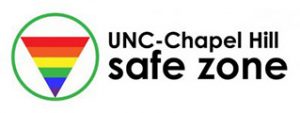 The UNC LGBTQ Center offers Safe Zone training. The Standard Safe Zone is a four-hour training is designed to introduce concepts, terminology and resources related to sexual orientation, gender identity, and gender expression. Participants develop a deeper awareness of personal ideas, stereotypes, and assumptions related to gay, lesbian, bisexual, transgender, intersex, queer and asexual (LGBTIQA) individuals; an increased comfort level in addressing concepts and language regarding LGBTIQA communities; an increased awareness of campus support services; and a network of community. Standard Safe Zone is a prerequisite for the two-hour Safe Zone Continuing Education trainings (e.g.,Transgender and Nonbinary; Intersex).
The UNC LGBTQ Center offers Safe Zone training. The Standard Safe Zone is a four-hour training is designed to introduce concepts, terminology and resources related to sexual orientation, gender identity, and gender expression. Participants develop a deeper awareness of personal ideas, stereotypes, and assumptions related to gay, lesbian, bisexual, transgender, intersex, queer and asexual (LGBTIQA) individuals; an increased comfort level in addressing concepts and language regarding LGBTIQA communities; an increased awareness of campus support services; and a network of community. Standard Safe Zone is a prerequisite for the two-hour Safe Zone Continuing Education trainings (e.g.,Transgender and Nonbinary; Intersex).
Mental Health First Aid Training
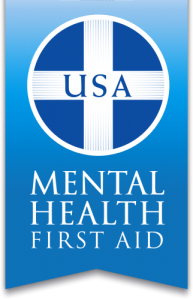 UNC’s School of Social Work offers Mental Health First Aid Training, usually once each semester, but also by request for specific departments and units. Mental Health First Aid is an 8-hour training that will give students, staff, and faculty the skills to help someone who is developing a mental health problem or experiencing a mental health crisis. Just as CPR training helps a layperson without medical training assist an individual following a heart attack, Mental Health First Aid training helps a layperson assist someone experiencing a mental health crisis.
UNC’s School of Social Work offers Mental Health First Aid Training, usually once each semester, but also by request for specific departments and units. Mental Health First Aid is an 8-hour training that will give students, staff, and faculty the skills to help someone who is developing a mental health problem or experiencing a mental health crisis. Just as CPR training helps a layperson without medical training assist an individual following a heart attack, Mental Health First Aid training helps a layperson assist someone experiencing a mental health crisis.
